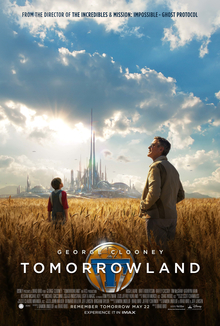 |
| Viggo Mortensen in Captain Fantastic |
Bodevan: George MacKay
Kielyr: Samanta Isler
Vespyr: Annalise Basso
Rellian: Nicholas Hamilton
Zaja: Shree Crooks
Nai: Charlie Shotwell
Harper: Kathryn Hahn
Dave: Steve Zahn
Jack: Frank Langella
Abigail: Ann Dowd
Leslie: Trin Miller
Director: Matt Ross
Screenplay: Matt Ross
Cinematography: Stéphane Fontaine
Production design: Russell Barnes
Film editing: Joseph Krings
Music: Alex Somers
From Woodstock to Mar-a-Lago, the terminus a quo and terminus ad quem of the Baby Boom generation. Or, as Matt Ross's Captain Fantastic would have it, from an off-the-grid cabin in the mountains to an opulent mansion beside a golf course. That, anyway, is how the film symbolizes the spiritual schism of the late 20th and early 21st century. It's a schism that manifests itself in the bipolar disorder of Leslie Cash, whom we see only in the visions of her husband, Ben, and in her casket. Anchored by yet another fine performance by Viggo Mortensen as Ben, the film risks becoming over-formulaic, especially in the big confrontation scene in which Ben pits his world view against that of Leslie's father at her funeral. The father is played by Frank Langella, who is an actor skilled at taking potentially one-note roles and adding the appoggiaturas they need to become interesting, so that even when world views collide in Captain Fantastic, we're not left to pick mere feel-good leftism out of the rubble. Ben and Leslie have tried to raise their six children uncontaminated by corporate capitalism, but the effort seems to have been too much for her -- after a breakdown, she is hospitalized and Ben carries on without her until her suicide forces him to take the precocious, home-schooled kids out into the world they never made. Ben can't resist showing them off, of course. At his sister's house he queries his teenage nephews about the Bill of Rights: The younger one thinks it has to do with what people are asked to pay for stuff, and the older knows vaguely that it has something to do with the government. So Ben marches out 8-year-old Zaja, who first starts by quoting it and is then prompted to articulate its significance, which she does superbly. But such encounters only emphasize how unprepared the kids are for anything but their own closed society. They may know the mechanics of sexuality, for example, but as the oldest son, Bodevan, discovers when he encounters a hot-to-trot teenage girl in a trailer park, they're unprepared for the real-world applications. There is, of course, no easy resolution for this culture clash, and Ross is forced into an ending that feels forced and compromised. Still, the performances of Mortensen, Langella, Kathryn Hahn, Steve Zahn, Ann Dowd, and especially the young actors playing the Cash family, make Captain Fantastic work as well as it could have.
